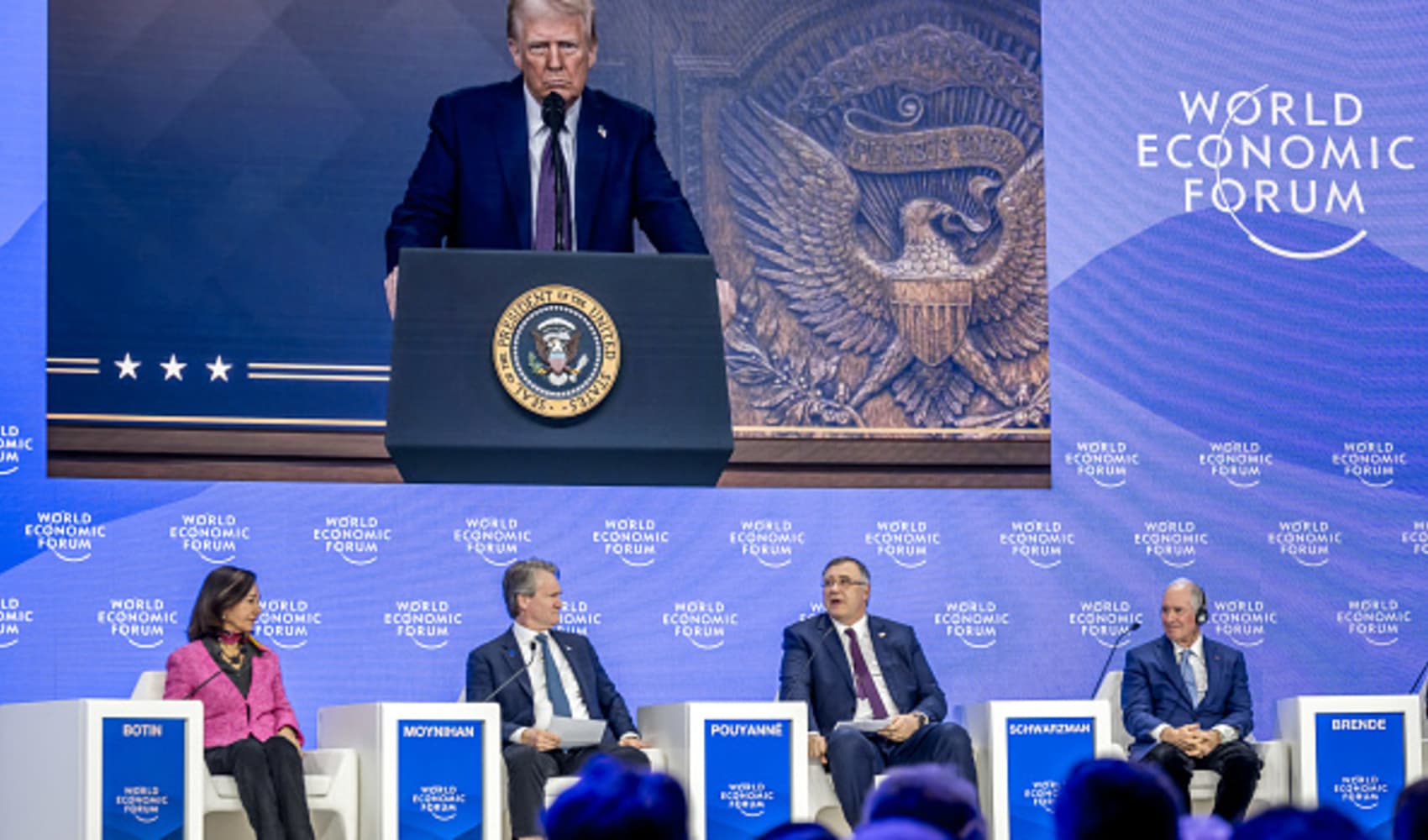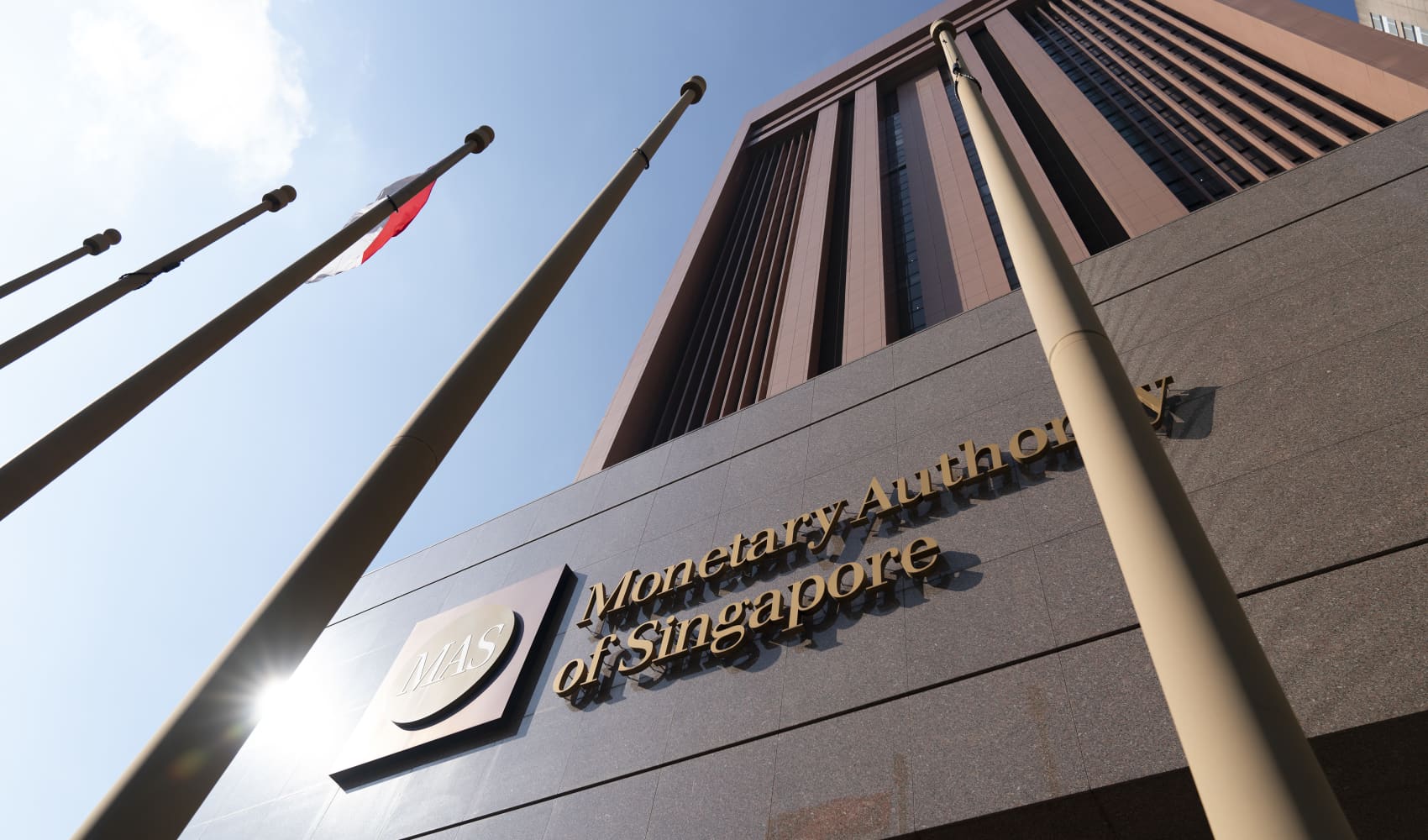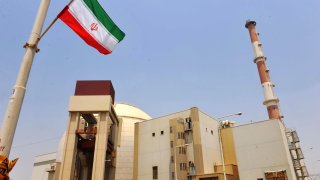
This handout image supplied by the IIPA (Iran International Photo Agency) shows a view of the reactor building at the Russian-built Bushehr nuclear power plant as the first fuel is loaded, on August 21, 2010 in Bushehr, southern Iran.
- "No matter how desperate a Biden administration may be for a deal, it will be Iran's response that will matter more," one Iran expert told CNBC.
- Iran's economy has contracted on average 6% each year since President Trump unilaterally withdrew from the multicountry deal.
- Iranian militant proxy activity in the Middle East and its uranium enrichment have only increased, rather than decreased, over the course of Trump's maximum pressure campaign.
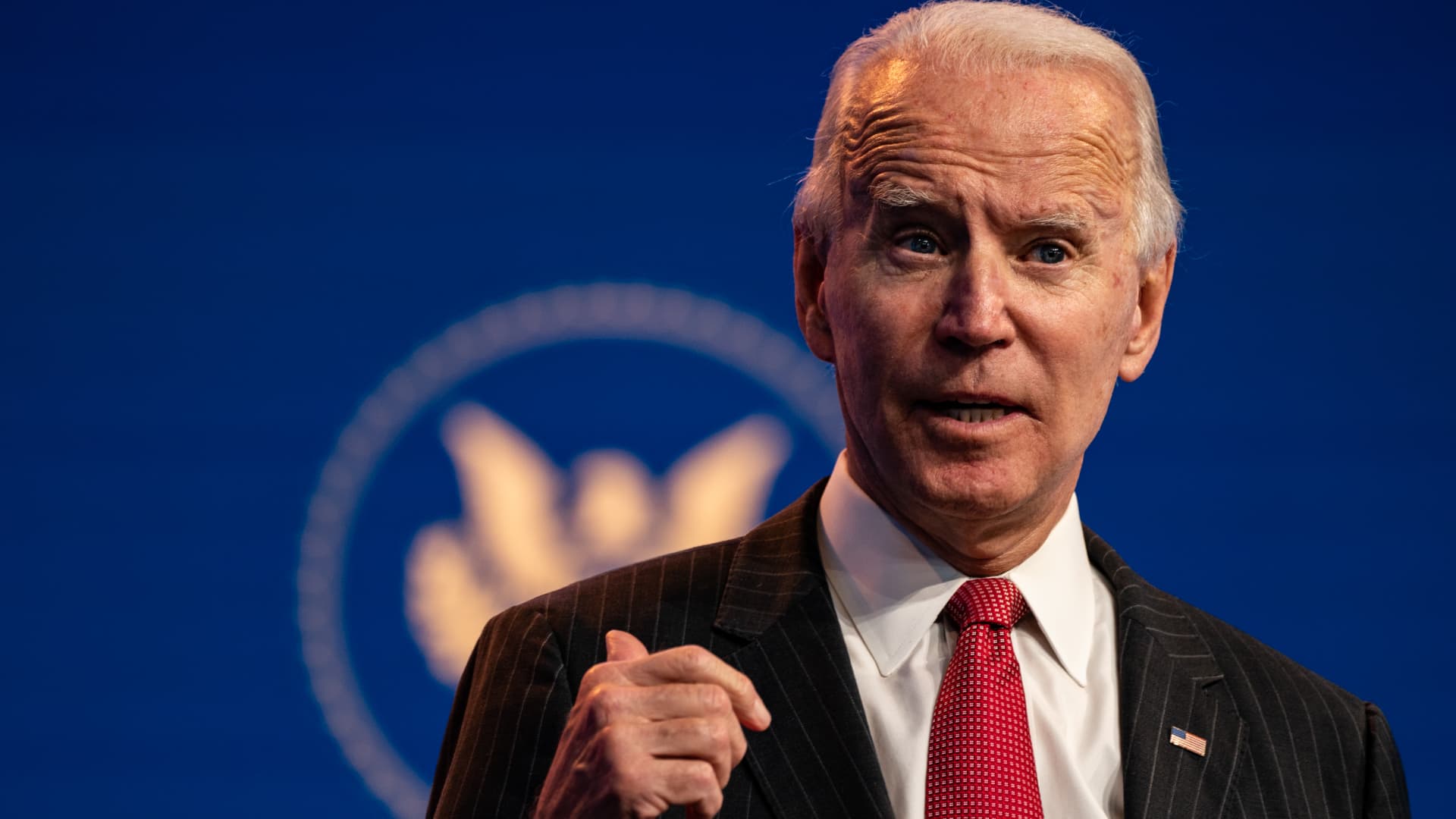
DUBAI, United Arab Emirates — President-elect Joe Biden made it clear during his campaign that his administration would favor a return to the 2015 Iranian nuclear deal, reversing a cornerstone of President Donald Trump's foreign policy in the Middle East.
But after three years of "maximum pressure" under Trump's sanctions and dramatically deepened distrust between Tehran and Washington, that may be a lot further off than it sounds.
"No matter how desperate a Biden administration may be for a deal, it will be Iran's response that will matter more," Behnam Ben Taleblu, a senior fellow at the Foundation for Defense of Democracies, told CNBC shortly after the U.S. election.
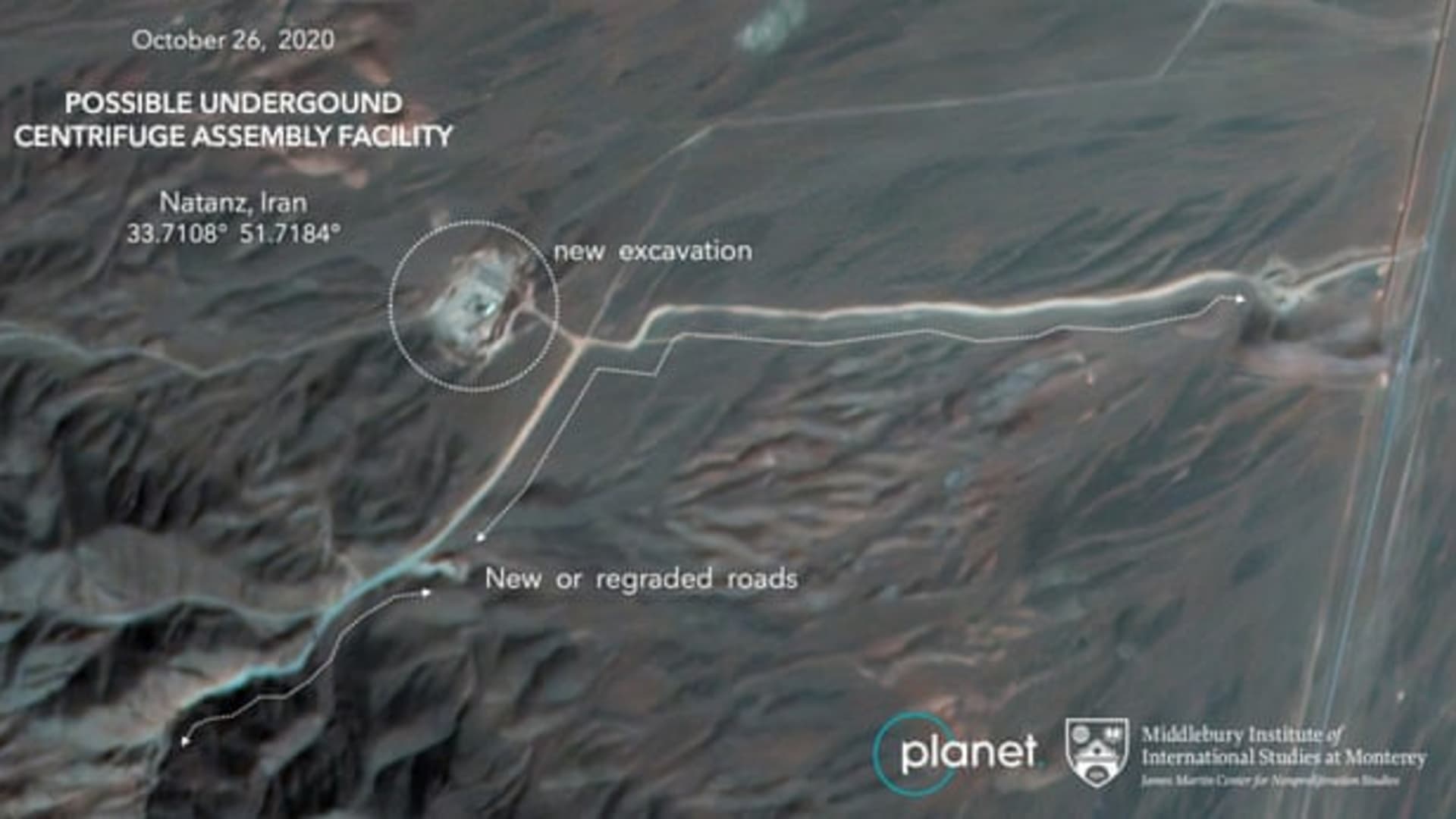
Iranian officials have alluded to a return to the Joint Comprehensive Plan of Action (JCPOA), as it's formally known, on the condition that Washington makes some serious concessions and "compensates" Iran for the economic bludgeoning it took under Trump's sanctions. Iran's economy has contracted on average 6% each year since Trump unilaterally withdrew from the multicountry deal, brokered under the Obama administration to curb Iran's nuclear activity in exchange for sanctions relief.
Money Report
'Political poison'?
"We can expect a Biden administration to attempt to put negotiations back on the table with Iran, but the main obstacle is that Iran itself may not be willing to negotiate," said Ryan Bohl, Middle East analyst at risk consulting firm Stratfor. "Not without notable U.S. concessions, which won't be popular even with a Biden presidency."
That could be "political poison" in the U.S. domestically, says Dave Des Roches, associate professor at the National Defense University in Washington, D.C.
"An incoming Biden administration will find that its toolbox is much smaller than it would have been for a Hillary Clinton administration in 2016," Des Roches said.
Trump's administration is currently doling out more sanctions on the Islamic Republic before its term is up, and while Biden could reverse many of these by executive order, "Iran is unlikely to be willing to go back to the JCPOA without some U.S. concessions, such as the lifting of sanctions on Hezbollah, missile programs, and Iranian human rights violators," he contended.
Iranian militant proxy activity in the Middle East and its uranium enrichment have only increased, rather than decreased, over the course of the maximum pressure campaign.
'Biden doesn't have great options'
Biden wrote in September that as president, he would "offer Tehran a credible path back to diplomacy" and "strengthen and extend the nuclear deal's provisions, while also addressing other issues of concern," naming human rights and "destabilizing activities."
But with the possibility of a new and more hard-line Iranian administration taking power after Iran's June 2021 elections, and a highly distrustful Supreme Leader Ayatollah Ali Khamenei who has consistently criticized negotiating with Americans, achieving a broader deal that further constrains Iran's weapons development and support for regional proxies will be a serious challenge at best.
"Democrats don't want to simply cave to Iran," Bohl said. "Biden doesn't have great options with Iran."
Tehran has ramped up its low-enriched uranium production beyond the parameters of the JCPOA in response to U.S. breaches of its end of the deal, with activity dramatically increasing since the second half of 2019, though it has slowed in recent months. Following the implementation of the JCPOA in 2016, international nuclear regulators put Iran's capacity to produce enough fissile material for a bomb at one year away; now, experts say that timeline is down to three months.
Still, years of maximum pressure and an economy on the brink of collapse could force Tehran into negotiating, experts say. Iranian President Hassan Rouhani could try to push through a return to the deal before the June election if he gets Khamenei's approval, though that approval is anything but guaranteed.
Fear of a Trump return
But for Biden, the Iran deal is likely not a top priority post-inauguration: His first six months are set to be consumed with tackling the coronavirus pandemic and a battered U.S. economy.
And within the U.S., national security experts are skeptical of real compliance from Iran if Washington dives into the deal too eagerly.
"A Biden presidency is likely to offer some sanctions rollbacks to Iran to incentivize them to reenter nuclear talks and hopefully to enter talks about their regional behaviors," Kirsten Fontenrose, director of the Scowcroft Middle East Security Initiative at the Atlantic Council, told CNBC. "But we should probably expect Iran to take advantage of this initial goodwill rollback and to try to get as much as they can out of a Biden administration while giving very little themselves."
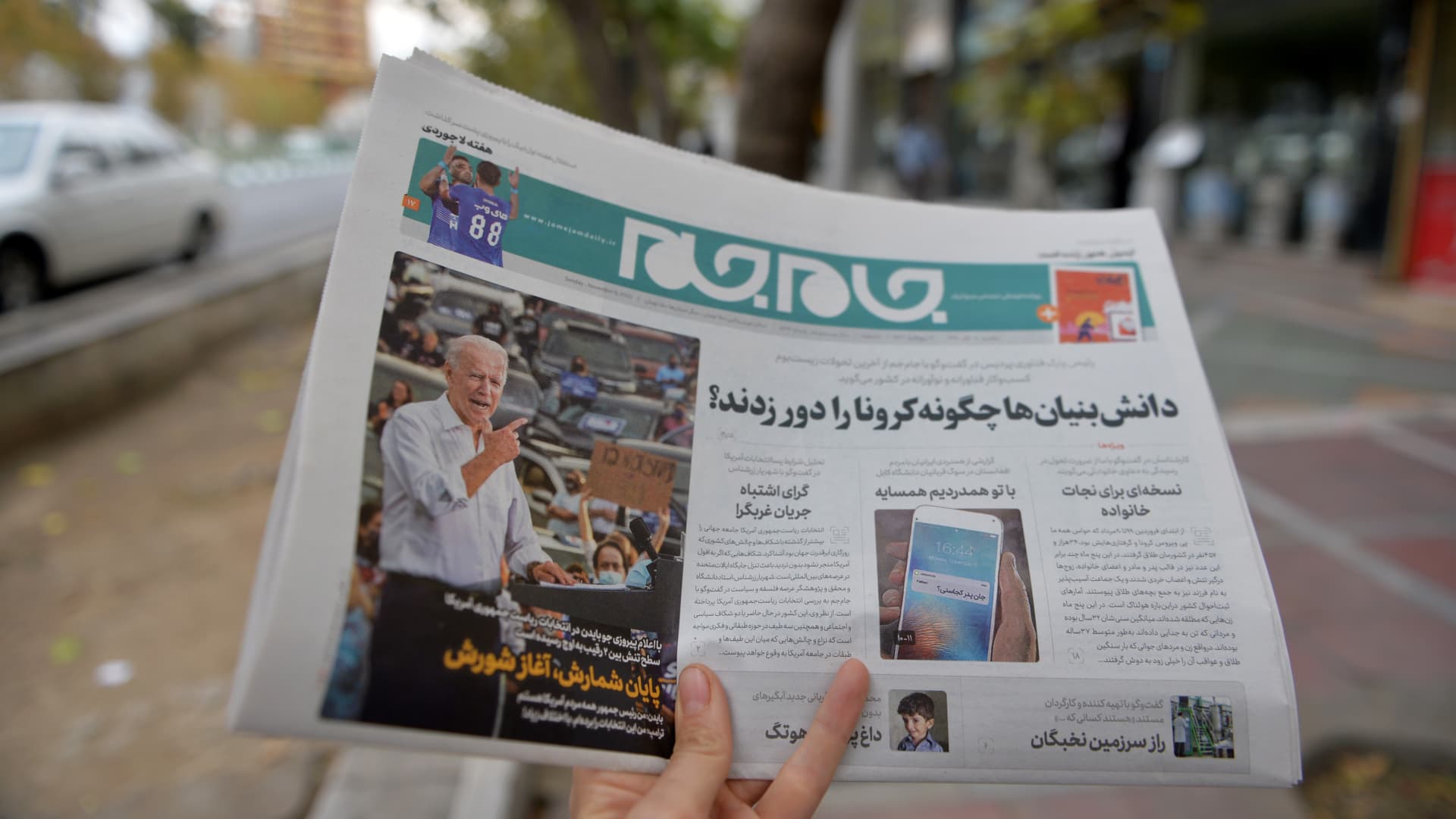
Meanwhile in Tehran, no matter how much goodwill might come from the Biden administration, the lingering worry that Trump or someone like him could return in 2024 will remain at the back of Iranian officials' minds.
"Whatever deal they do with Joe Biden, the next president could come and undo it, so how do they make it stick?" Amir Handjani, fellow at the Quincy Institute, told CNBC, describing Tehran's thinking. "That's going to be the real test for any deal. But any Iranian negotiator, who we do not envy, will have to go back to Iran and sell that to the supreme leader, to the Revolutionary Guards — very tricky to do."


